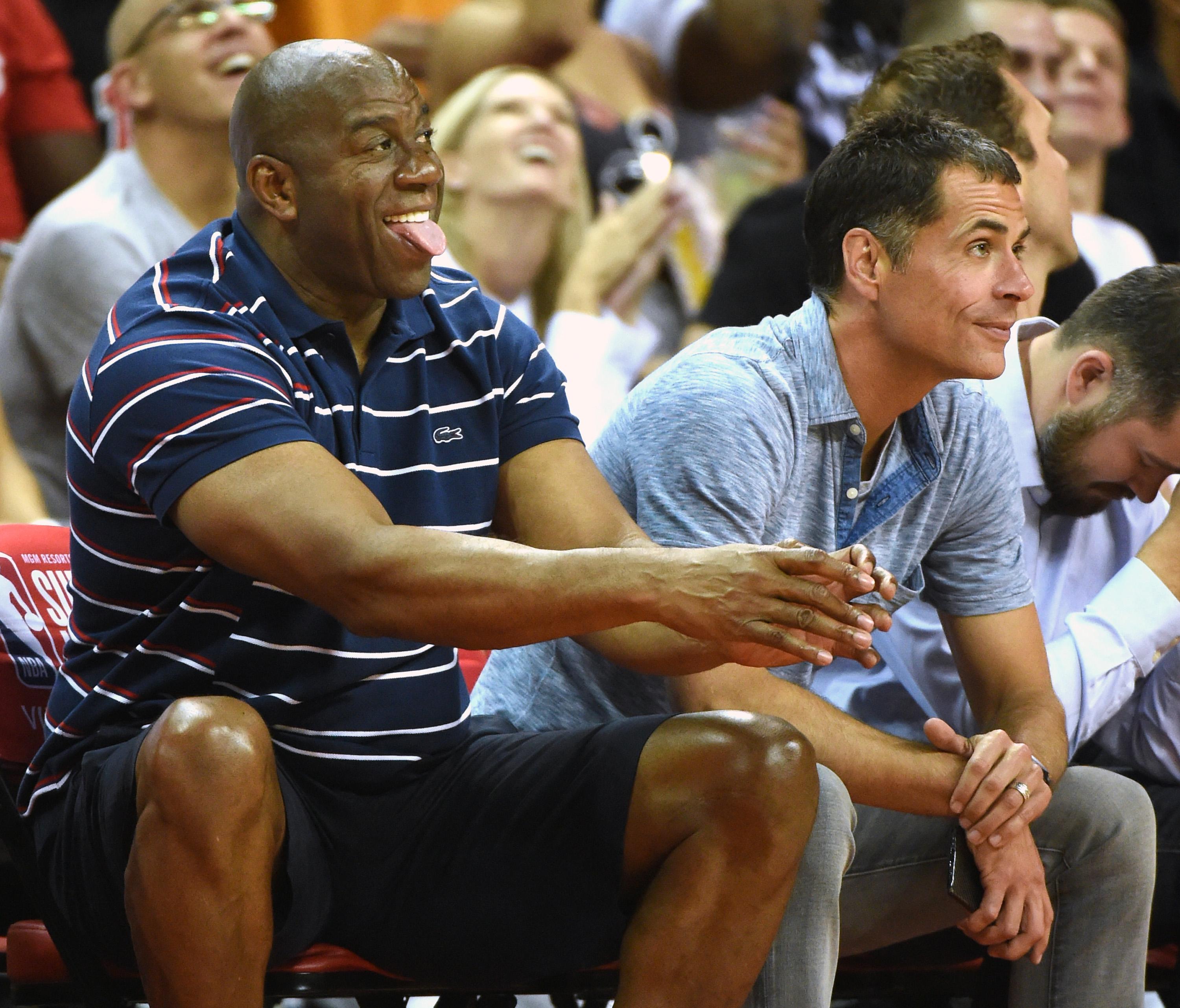
The NBA announced Thursday that the Los Angeles Lakers will be fined $500,000 for tampering, a charge levied against the team after general manager Rob Pelinka made impermissible contact with Paul George’s agent, Aaron Mintz, and expressed interest while George was still under contract with the Pacers.
The fine also takes into account a previous warning issued to the Lakers following Magic Johnson’s appearance on Jimmy Kimmel Live!, in which Magic talked about his education in how not to tamper—and then went ahead and tampered anyway.
Pelinka is a former agent turned GM, so there were bound to be some growing pains as he and Magic, who is also a rookie in his role as team president, adjusted to the different rules and regulations they have to abide by. And plus, when a star player says he wants to come play for your team, you try to make that happen. Though, according to the league, “the investigation did not reveal evidence of an agreement or understanding that the Lakers would sign or acquire Mr. George."
$500,000 is a lot of money, but for the Lakers, who were exposed to possible draft-pick removals and other, harsher punishments, it’s a slap on the wrist, really.
Some context:
$500,000 is 1/1,200th of Magic’s net worth.
$500,000 is less than what Kobe made every two games in his final season.
$500,000 is less than 1 percent of the Lakers’ total payroll.
You get the idea. It’s a lot of money, but it really isn’t.
But what the fine lacks in consequential damage, it makes up for in message. As much as we know there’s undoubtedly tampering happening all the time in the NBA, if it can, the league will fine teams for tampering. This the largest fine for a tampering violation.
This is the reality of the league. Rumors and transactions are now a large part of the league’s DNA, and a driving force of its growing appeal. Everyone knows each other and is friends with each other (OK, maybe not Kyrie and LeBron anymore), and the ease of communication between agents, players, owners, and general managers brings this unspoken practice into the light of day. It was always impossible to control tampering, but now that there’s more ways in which the practice could become public, the league is being forced to deal with such complaints, especially if it was brought forward by a team that had legitimate reasons for doing so. Not everyone is used to the new reality of the league just yet. The Lakers’ obvious misstep makes them pioneers in a way. $500,000 is now the cost of doing a little extralegal business—which seems like a small price to pay if it gets you what you want.
An earlier version of this piece incorrectly claimed that the Lakers’ tampering fine was the second largest in history; it is the largest.